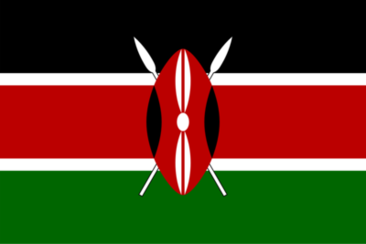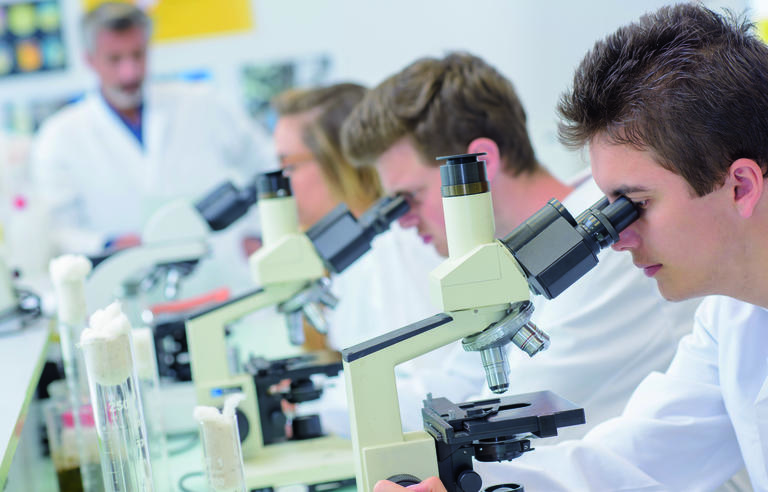Following the reform of health studies, the first common year of health studies (PACES) was abolished. Access to health studies will be possible via two different paths in the first year of study : The health course (PASS) and the health access license (L.AS).
Following the reform of health studies, the first common year of health studies (PACES) was abolished. Access to Medicine, Maieutics, Odontology, Pharmacy, and Physiotherapy (MMOPK) will be possible via two different paths in the first year : The health course (PASS) and the health access license (L.AS). Only the access to the first year is reformed, the pursuit of studies does not change.
MMOPK: MEDICINE, MAIEUTICS, ODONTOLOGY, PHARMACY, AND PHYSIOTHERAPY
This reform aims to:
- Improve the orientation and success of students in line with the student plan.
- Adapt the skills of future professionals to the needs of the health system to support its transformation.
- Decompartmentalize the health sectors and allow joint training time.
Since the start of the 2020 school year, candidates who have just graduated from the baccalaureate or equivalent will have two possibilities to study medicine:
-
A specific “health access” course (PASS), with an option from another discipline (eg: law option, biology option, etc.). At the end of the 1st year:
- If the student is admitted to a health study: he/she then continues in the 1st cycle of health studies (medicine, maieutics, odontology, or pharmacy)
- If the student does not pass the admission tests but validates his 1st year: he/she can continue in the 2nd year of the license in the option he/she has chosen. In this case, he/she may retry taking the tests for admission to health studies a second and last time. He/she can apply at the end of L2 or L3.
- If the student does not validate his/her first year: he/she must reorient himself, no repetition possible.
-
A license with an option "health access" (L.AS), which corresponds to the strengths of the student with an option X (eg: letters, rights, etc.) and a health option for the sector in which he is interested. At the end of the first year:
- If the student validates his/her 1st year and passes the admission tests for health studies: he/she can be admitted to the 2nd year in the health sector in which he/she initially enrolled.
- If the student validates his/her 1st year but does not pass the admission tests for health studies: he/she can continue in option X which was initially chosen. He/she may submit his application for health studies a second and last time, at the end of L2 or L3.
- If the student does not validate his 1st year: he/she can repeat this first year or reorient himself.
End of the numerus clausus and competitions
Besides the abolition of the PACES, the selection process is modified and the numus clausus disappears.
Each university will determine, in conjunction with its regional health agency, the number of students it admits in each health sector, and will distribute the places between the different access routes. The unique competition based exclusively on multiple-choice questions has been suppressed.
Students will be selected on the basis of their results in their training course (L.AS or PASS) and, in certain cases, on additional tests, including oral tests. Each university will decide on the admssion tests it wishes to set up (written and oral exams, selection on student file).
The characteristics of the selection tests
Health studies remain selective, applications are evaluated on:
- The grades obtained during the training courses that are relevant to assess the skills necessary for success in health studies.
- Complementary tests, oral or written, which allow the appreciation of other equally useful skills.
- Students who have obtained grades above a threshold set by the University in their training course may be admitted directly without taking the additional tests. The modalities of these tests will be specified by each university.
ACCESS IN THE 1ST YEAR PASS (parcours spécifique « accès en santé ») / L.AS (licence avec option « accès en santé »)
This access is open to any foreign student outside the EU. There are no entrance exams for PASS or L.AS, nor limits on the number of applications on different campaigns for L.AS.
For countries not attached to Etudes en France, such as Kenya, candidates also follow the white DAP procedure.
The student can apply as many times as desired in PASS or L.AS. However, any registration in PASS is counted as a use of a chance to apply for MMOP training. The application is treated as a classic white DAP by the Embassies and universities.
At the end of the first year, on condition of having validated the 60 ECTS of the PASS or the L.AS as well as the health minor or the disciplinary minor, the student will be able to take the tests for access to MMOP training: like any student, they will only have two chances to access this cycle of studies. The second chance can only occur when the student has acquired 60 ECTS additional compared to 60 ECTS already acquired previously.
N.B. The use of this route through the registration and follow-up of a year of PASS or L.AS does not allow to benefit from the procedure known as the "exemption from studies" and therefore only allows access to the 2nd year of the 1st cycle.
PASS OR L.AS, HOW TO CHOOSE?
Highschool students must take into account their strengths, areas of interest, and the fields that interest them outside of health.
The application for health studies will be judged, to a large extent, on the grades obtained in the first year at the university. It is therefore recommended to formulate wishes for courses that correspond to their strengths in highschool and to their study project.
Highschool students whose strengths are in fields not related to biology can choose a license with a " health option " in a field that interests them.
Health studies are long:
- Bac + 5 for midwives
- Bac + 9 to bac + 11 for doctors
- Bac + 6 to bac + 9 for pharmacists
- Bac + 6 to bac + 8 or bac +9 for the third long cycle for dentists
HOW TO REGISTER IN MMOPK?
The MMOPK (PASS or L.AS) application procedure in public universities is carried out on the Studies in France platform
Except in cases of exemption and exceptions, certification in French (TCF or DELF or DALF) is mandatory.
FOR WHO?
Students having a health degree or are in the process of these same studies in a foreign country outside the EU wishing to pursue health studies in France. They must meet one of the following two criteria:
1. Either be undergoing health studies in their country;
2. Or already hold a health degree (that is to say medicine, maieutics, dentistry or pharmacy) obtained abroad.
What year does the student enter?
According to their profile, the student admitted to MMOP training may be granted a study exemption allowing them to go directly from the second year of the 1st cycle to the penultimate year of the 2nd cycle of the course concerned (5th year for medicine, 4th year for maieutics, odontology and pharmacy).
CAN THE STUDENT APPLY TO SEVERAL INSTITUTIONS?
The student can only apply to one institution.
WHAT IS THE PROCEDURE?
Students apply directly to the university for access to the 2nd year of the 1st cycle of MMOP studies, like other students enrolled in L.AS or PASS. The only difference is that this file is made up of their previous training path in the foreign country outside the EU, instead of the PASS or LAS path.
The file is examined by the jury, which may possibly give the candidates an oral examination. If the candidates are admitted to the 1st cycle, their file are then examined with a specific look on the possibility of exemption of studies. The president of the university, after consulting the dean, decides on the number of years of exemption of studies, the candidates can benefit.
After the examination and evaluation of the applications by a jury of the university, three outcomes are possible for each application (the results will be communicated by the institutions to the students directly by electronic message).
1. The student is exempt from oral exams and has direct access to MMOP training.
2. The student is invited to take oral tests: in this case, they will either have to apply for a competition visa to go where the test is being offered (provided with summons), or they can take their tests remotely. This will depend on the acceptance by the institutions after the verification of the candidate's identity by the French Embassy from the country where the candidate applies.
3. The student's application is rejected. It is possible to try againg, but only once, in a future applicaiton campaign.












